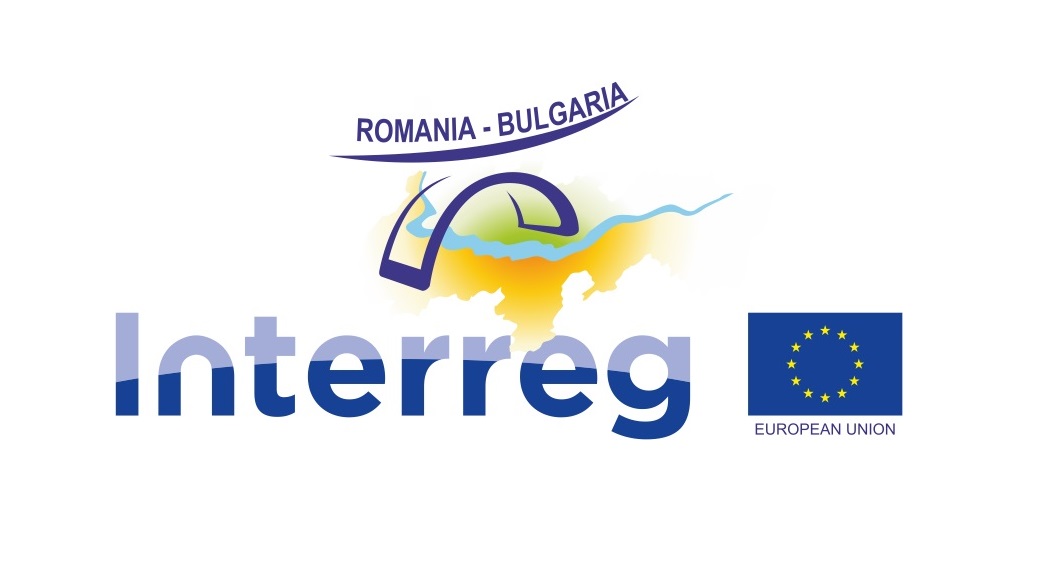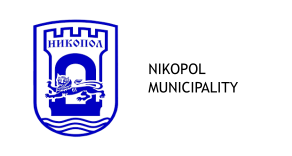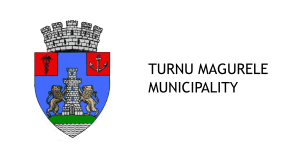Festival Bridges of Time
Dates 6, 7 and 8 October 2023.
The Festival of Antiquity and the Middle Ages will be held within three days on both banks of the Danube River within the project “Bridges of Time: An Integrated Approach to Improving the Sustainable Use of Cross-Border Cultural Heritage in Nikopol and Turnu Magurele”, funded by the Interreg V-A Romania-Bulgaria Programme 2014-2020 and national co-financing.
It rests on the common historical roots of Bulgaria and Romania in antiquity (Roman Empire) and the Middle Ages, as well as on the archaeological and cultural monuments preserved from the respective eras.
Considering the presence of common landmarks that connect the two banks of the Danube – the Bridge from the time of Emperor Constantine / III century / and a medieval fortress known as Nikopol and Little Nikopol in Turnu Magurele. The festival will have a common structure developing on the territory of the two municipalities Turnu Magurele and Nikopol and covering both eras in both cities – two days in Romania and then two days in Bulgaria. The festival days will alternate – its launch will be in Romania, the next day it will be in Bulgaria and Romania in parallel, but in different eras and closing will be in Bulgaria.
First festival day in Turnu Magurele – 6 October
The focus of this day will be Roman lifestyle and culture
09:00 a.m.– 14 00 a.m. Began the pitching of the military camps of all clubs / legions and medieval clubs depending on arrival / – tents, weapons pyramids, enclosures, watchtowers, checkpoints, etc. During the construction, presenters presented various aspects of Roman military art: the principles of military camps, mode of organization, the purpose of different sectors, the construction of tents, etc. This is followed by the presentation of the armaments and costumes of the legionaries, demonstration of armor, swords, shields, armor and equipment (until the end of the festival will vary during to the end of the festival). Presenters give the necessary information and answer questions. / there will be a translation into Bulgarian /
The clubs also present the most attractive fighting skills, accessories – weapons, combat helmets and armor, etc. Visitors will be able to take pictures and test the equipment, have time to take pictures and ask questions about the equipment.
Demonstrations in line training with commands in Latin, borrowing in combat order, commands for offensive and retreat /translator translates into Bulgarian/. Visitors will have the opportunity to touch and try out the different demonstrations, clothing and more. personal, enriching knowledge of ancient heritage.
2 p.m. – 18 00 a.m. Time for viewers to take pictures with the legionaries and to put on and try the equipment, weapons and equipment of the Romans and the knights. Lessons in weapon handling and stage combat will also be conducted. Opportunity to buy weapons and souvenirs, to mint coins or just to walk around the camps / translator translates into Bulgarian /.
15 00 – 17 00 Roman cuisine: Set with kitchens, grills and chevermeta, where dishes are prepared – soups and grill authentic Roman recipes and spices. The audience has the opportunity to taste all kinds of specialties from vegetables, meats and fish inherent in the Roman cuisine of the era. A specialist – a chef in ancient cuisine explains the peculiarities of Roman and Mediterranean cuisine, product features, spices and specific cooking appliances and makes a culinary show. The famous Roman fish soup is prepared, cakes are baked on a plate, vegetables inherent in the Roman table are baked on grills. Culinary – specialists in Roman cuisine give an open lesson in the culinary art of ancient Rome for those who want to acquire practical knowledge. /translator translates into Bulgarian/
Wine tasting and got acquainted with the grape varieties in ancient times, a way of seasoning with various flavorings and spices. The Roman culture of drinking and the use of wine and Latin sayings derived from it. /translator translates into Bulgarian/
17 00h. Lifestyle and crafts of the era. There is a set / separate area / where various crafts are presented and trade is carried out. Most of the presented craft professions can be interactive and the audience learns to grind on a potter’s wheel, to forge weapons, to mint coins, to knit fishing nets, to process leather, to use a wooden lathe to make various tools, etc. In this part of the program, visitors will have the opportunity to Learn about the craftsmanship itself personally and add something to themselves in memory of your visit. There will be talks about crafts, and those who wish will be able to try out the different types of processing during the era in which they wish. They will be able to make coins, work wood, clay and metal. Teams will be engaged for all who wish to experience the processing in the crafts that are offered. /translator translates into Bulgarian/
6:30 p.m. Roman military, civil and children’s games
Military maneuvers of the Roman legions / clubs / – war games – demonstration of the regimental skills and combat order of the legions. Gaping battle order – turtle, fighting cavalry, attack and retreat, fighting barbarians and others. Each club / corresponding to a particular legion / has individual fighting skills and techniques /.
The audience may try archery, javelin throwing or many of the sports practiced in ancient Rome, some of which were brought from Ancient Greece. For children there will be a separate corner in which they will try different games left by the Romans: Rolling wheels with a stick, inserting a ball into holes / Roman mini golf / board games as a checker / with three and nine checkers / and many others. There will be tournaments in medieval weapons, shooting with medieval bows, combat demonstration and learning of techniques by the legions, at the festival. /translator translates into Bulgarian/
19 00 h Official opening of the festival on the square or in the city garden on the back of the large monument in Turnu Magurele with a parade of Roman legionaries / representatives of various clubs from Romania, Bulgaria, etc. and the host clubs from Turnu Magurele and Nikopol. The parade is accepted by a Roman legate or consul ruling the area. Presenter presents each legion, geographical location, his insignia, feats, combat history, etc. /translator translates into Bulgarian and if the project requires it into English/.
The parade continues with a parade on the streets of the city and ends in the city park or in another site where a Roman and medieval military camp, an arena for gladiators and military demonstrations, etc., indicated by the municipality of Turnu Magurele, was built.
8:30 p.m. Lighting torches in legion camps and medieval/clubs/and presenting an opportunity to participate in nightlife. Placing a guard, and changing the guard. Cleaning and stacking of weapons (visitors will be given the opportunity to learn to clean and use the weapons of the time – the age of action), bumpers and accessories and donning civilian clothes. Songs and various entertainment such as prepared Roman and antique board games (used at the time for Expanding knowledge and strategic preparation for the fighting) and preparation for the night rest with music from the Middle Ages and Antiquity and many others. /translator translates into Bulgarian/
21 00 Multimedia performance that presents the construction and cultural achievements of the Roman civilization – bridges, buildings, viaducts, public baths, religious temples, palaces, etc. The multimedia performance will be accompanied by poems by Roman poets, accompanied by original musical performances from the era. /translator translates into Bulgarian/
This concludes the first day of the festival in Turnu Magurele, in which the emphasis is placed mainly on Roman lifestyle and culture, relying on the second day to be dedicated to the knights.
Second festival day with a focus on medieval and chivalrous culture and lifestyle – Nikopol 7 October
10:00 a.m. – 2 p.m. Medieval knightly clubs pitched their camps, which could also develop in front of the medieval fortress, which had guards on the towers and waved flags of the ruler Mircea the Elder. Pitching tents, constructing armory, placing guards on the perimeter. Caring for horses and equipment in camps. Presentation of the clubs and which feudal families they represent and from what century the equipment is. Show weapons and armor. Presenters give the necessary information and answer questions. / translator translates into Bulgarian /.
12:00 p.m.Opportunity for the audience to do photo sessions with the knights, try armor and weapons, get on horses, etc. Open lessons for handling various weapons, stage medieval combat and other entertainment. /translator translates into Bulgarian/
1 p.m.Official opening of the medieval-second part of the festival. Parade of clubs that welcome the ruler of Wallachia – Mircea the Elder.
An envoy arrived from Sigismund of Luxembourg with news that the united Christian armies had entered Bulgaria and asked Mircea the Elder to join them against the troops of the Ottoman Turks – Bayezid.
A military council followed and a decision to participate in the crusade of King Szegismund I and to support the cause of the united Christian armies. /translator translates into Bulgarian/
15 00h. Medieval cuisine of the European peoples
Presentation of the cuisine of some of the European nations participating in the Crusade against the Tercs. / exemplarily half /
Tastings of food and beverages / wine, beer, mead, etc. / characteristic of different peoples. Presenters give the necessary information and answer questions. Open lessons in medieval cuisine / translator translates into Bulgarian /.
17 00h. – 19 00h. Attractions related to medieval crafts and trade. As well as social, religious and cultural life. Setting up a trial for thieves, murderers and witches. Execution of punishments – wooden cages and “donkeys”, inquisition appliances, etc.
Sellers of religious fetishes, dressed in all sorts of races, offer – crosses, icons, indulgences, relics, etc. Presenters give the necessary information and answer questions. / translator translates into Bulgarian /.
19 00h. Concert and Cultural Medieval Program
Troubadours and reciters of knightly poems. Fire swallowers, jesters and mimes will cheer the audience. Puppet Theatre and Comedy dellArte will present medieval mores. Presenters give the necessary information and answer questions. / translator translates into Bulgarian /.
Third festival day in Nikopol – dedicated to the Middle Ages lifestyle, culture and cuisine. The focus is on the Bulgarian Middle Ages, the historical events in Nikopol and the monument – the church “St. St. Peter and Paul
10 00h. – 14 00h. Medieval knightly clubs pitched their camps, which could also develop in front of the medieval fortress, which had guards on the towers and waved flags of the ruler Ivan Shishman. Stretching tents, constructing armory, placing guards on the perimeter. Caring for horses and equipment in camps. Presentation of clubs and which feudal families they represent and from what century the equipment is. Show weapons and armor. Presenters give the necessary information and answer questions. . / translator translates into Romanian /.
There will be an opportunity for the audience to observe and get involved interactively and to get as close as possible to the knights. To try armor and swords, to shoot bows and to get guidance and techniques for medieval military doctrine – Byzantine, Bulgarian and Western European / Presenters give the necessary information and answer questions about the armament and the design of the battle. / translator translates into Romanian /.
Parade of clubs of various European medieval families and crusader clubs associated with the march of Sigismund of Luxembourg in the center of Nikopol / on the central square and head in a “battle march” to the cultural and historical complex “Bridges of Time” on the banks of the Danube /. The idea is to bring as many audiences as possible along the way, even from citizens who are not informed about the Festival.
12 00h. – 14 00h. Different military units, / cavalry, archers, heavily armed infantry, etc. depending on the capabilities of the clubs / demonstrate their skills the purpose of their squad. / translator translates into Romanian /.
13 00h. – 14 00h. Opportunity for the audience to do photo sessions with the knights, to try armor and weapons, to get on horses, etc. Open lessons for handling various weapons, stage medieval combat and other entertainment. Crafts from the Middle Ages – the audience will be able to forge weapons, sharpen clay, ply wool, knit armor, learn calligraphy and paint icons, or creates miniatures – images of the knight’s beloved.
14 00h. – 16 00h. Attractions related to medieval crafts and trade. As well as public, religious and cultural life. Recreation of a medieval market of goods and animals. Guards pursue fraudsters and thieves. Setting up a trial for thieves, murderers and witches. Executions of punishments – wooden cages and “donkeys”, inquisition appliances, etc.
Sellers of religious fetishes, dressed in all sorts of races, offer – crosses, icons, indulgences, relics, etc. Presenters give the necessary information and answer questions. / translator translates into Romanian /.
14 – 16:00 Medieval cuisine of the European peoples
Presentation of Bulgarian national cuisine and the cuisine of some of the European nations participating in the Crusade against the Turks. / presentation of the other national cuisines not represented in Turnu Magurele /
Tastings of food and beverages / wine, beer, mead, etc. / characteristic of different peoples. Presenters give the necessary information and answer questions. / translator translates into Romanian /.
16 00 – 17 00h . In the yard of the church “St. St. Peter and Paul “is performed a medieval baptism or engagement with a recreation of the ritual of the Middle Ages and church-Slavonic singing. / translator translates into Romanian /.
16 00h. – 17 00h. Fashion show “Knight’s Fashion” and the fashion of the medieval cities of the nations participating in the march. Knight’s armor and armament will be demonstrated and will tell in detail about the application, weight and craftsmanship and the region. Women’s fashion, jewelry, hats, etc. will also be demonstrated. / translator translates into Romanian /.
17 00h. – 18 30h. Knightly tournaments dedicated to Tsar Ivan Shishman or Emperor Sigismund of Luxembourg. The tournaments are held in a specially prepared arena with a tribune on which is the Emperor and his court watches the attractive performances of the knights / for the most dangerous scenes will be engaged professional stuntmen or participants in reenactment clubs /.
Nobles compete for the hand of a princess and for the title of greatest knight. In the breaks between skirmishes, the audience gets the opportunity to test weapons, shoot crossbows and bows, fight with a wooden simulator, etc. Presenters give the necessary information and answer questions. / translator translates into Romanian /.
18 30 – 19 30 a.m. Then the winner is awarded through a medieval wedding, receiving the hand of the princess for whom he fought. The wedding is played out and the music / troubadours / and dances are moved. / translator translates into Romanian /.
19 30 –20 00h. Official closing of the festival
20 00h. Multimedia spectacle that presents the construction and cultural achievements of the Middle Ages – bridges, buildings, cathedrals, public buildings, castles, fortresses, palaces, etc. The multimedia performance will be accompanied by a display of examples of Christian fine art – Catholic and Orthodox, accompanied by original musical performances from the era. . / translator translates into Romanian /.
Note: The program of the Festival may change, depending on the weather conditions or other objective circumstances that are not under the control of the organizers.





Comments 0